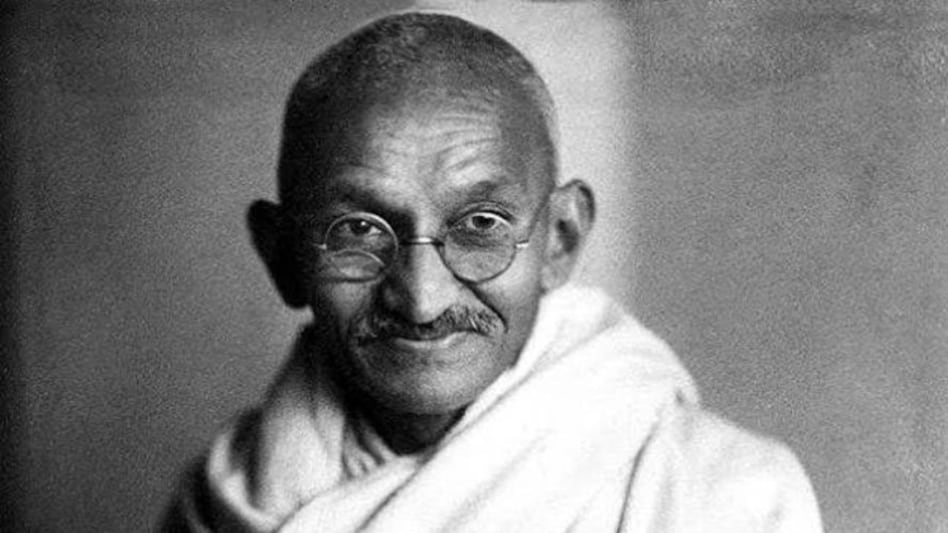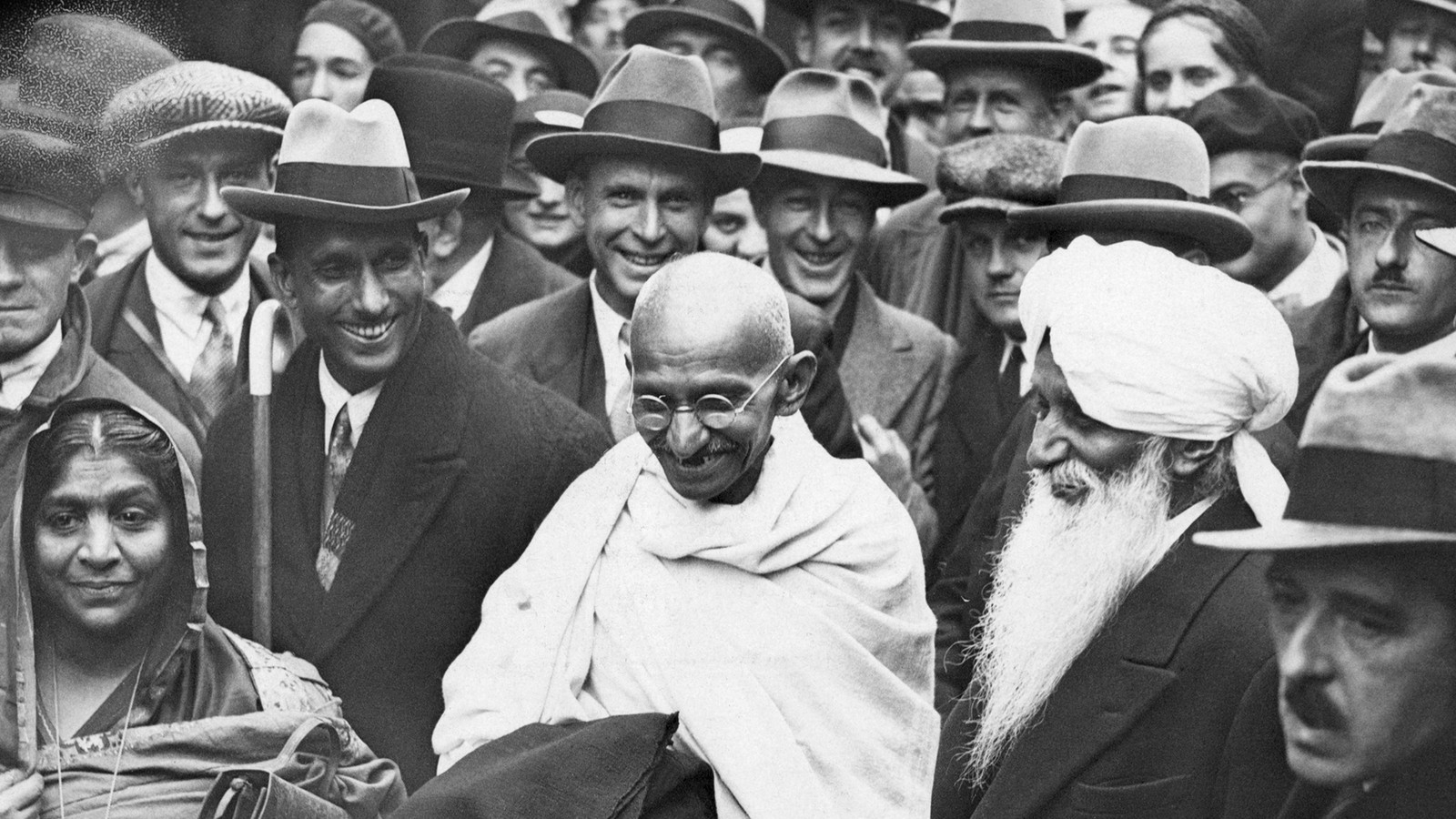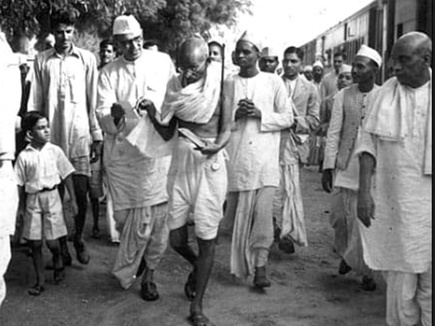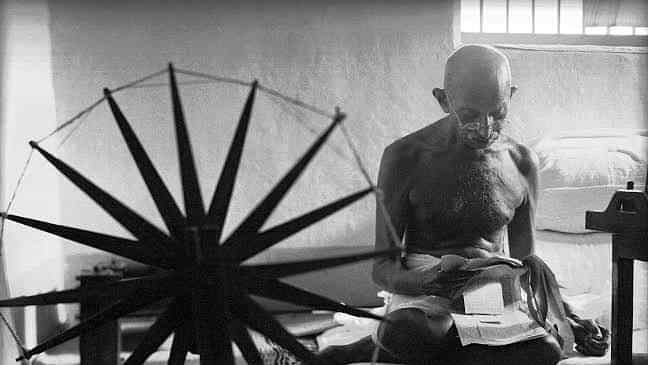Mahatma Gandhi
Total Views |

Full Name: Mohandas Karamchand Gandhi
Born: 2 October, 1869
Place of Birth - Porbandar, Gujarat
Death - 30 January, 1948
Place of Death - Delhi, India
Cause of Death - Shot by Gun or assassination
Father - Karamchand Gandhi
Mother - Putlibai Gandhi
Nationality - Indian
Spouse - Kasturba Gandhi
Children - Harilal Gandhi, Manilal Gandhi, Ramdas Gandhi and Devdas Gandhi
Professions - Lawyer, Politician, Activist, Writer
Early Life and Family Background
He was born on 2 October, 1869 in Porbandar, Gujarat. His father’s name was Karamchand Gandhi and his mother’s name was Putlibai. At the age of 13, Mahatma Gandhi was married to Kasturba which is an arranged marriage. They had four sons namely Harilal, Manilal, Ramdas and Devdas. She supported all the endeavors of her husband until her death in 1944.
His father was Dewan or Chief Minister of Porbandar, the capital of a small principality in Western British India (Now Gujarat State). Mahatma Gandhi was the son of his father's fourth wife Putlibai, who belonged to an affluent Vaishnava family. Let us tell you that in his earlier days, he was deeply influenced by the stories of Shravana and Harishchandra as they reflected the importance of truth.
Education
When Gandhi was 9 years old he went to a local school at Rajkot and studied the basics of arithmetic, history, geography, and languages. At the age of 11, he went to a high school in Rajkot. Because of his wedding, at least about one year, his studies were disturbed and later he joined and completed his schooling. He joined Samaldas college in Bhavnagar in 1888 at Gujarat. Later, one of his family friend Mavji Dave Joshi to pursue further studies i.e. law in London. Gandhiji was not satisfied with the studies at Samaldas College and so he became excited by the London proposal and managed to convince his mother and wife that he will not touch non-veg, wine, or women.
Off to London
In the year 1888, Mahatma Gandhi left for London to study law. Thereafter 10 days of arrival, he joined the Inner Temple, one of the four London Law colleges, and studied and practiced law. In London, he also joined a Vegetarian Society and introduced to Bhagavad Gita by some of his vegetarian friends. Later, Bhagavad Gita set an impression and influenced his life.

At South Africa
In May, 1893 he went to South Africa to work as a lawyer. There he had the first-hand experience of racial discrimination when he was thrown out of the first-class apartment of the train despite holding the first-class ticket because it was reserved for white people only and no Indian or black was allowed to travel in the first class. This incident had a serious effect on him and he decided to protest against racial discrimination. He further observed that this type of incident was quite common against his fellow Indians who were derogatorily referred to as coolies.
On 22 May, 1894 Gandhi established the Natal Indian Congress (NIC) and worked hard to improve the rights of Indians in South Africa. In a short period, Gandhi became a leader of the Indian community in South Africa. Tirukkural ancient Indian literature, originally written in Tamil and later translated into various languages. Gandhiji was also influenced by this ancient book. He was influenced by the idea of Satyagraha that is a devotion of truth and in 1906 implemented non-violent protest. He returned to India in 1915, after spending 21 years of his life in South Africa, and no doubt, there he fought for civil rights and at this time he was transformed into a new person.
Role in Indian Independence Movement
In 1915, Gandhiji returned to India permanently and joined the Indian National Congress with Gopal Krishna Gokhale as his mentor.
Gandhi's first major achievement was in 1918 when he led the Champaran and Kheda agitations of Bihar and Gujarat. He also led Non-Cooperation Movement, Civil Disobedience Movement, Swaraj, and Quit-India movement against the British government.

Satyagraha
Gandhi identified his overall method of non-violent action as Satyagraha. Gandhiji's Satyagraha influenced eminent personalities such as Nelson Mandela and Martin Luther in their struggle for freedom, equality, and social justice. Mahatma Gandhi's Satyagraha was based on true principles and non-violence.
Death
Mohandas Karamchand Gandhi was assassinated on 30 January 1948 by Nathuram Godse. Godse was a Hindu nationalist and a member of the Hindu Mahasabha. He accused Gandhi of favouring Pakistan and was opposed to the doctrine of non-violence.

Literary works
Gandhi was a prolific writer. Some of his literary works are as follows:
• Hind Swaraj, published in Gujarati in 1909.
• He edited several newspapers which included Harijan in Gujarati, in Hindi and the English language; Indian Opinion, Young India, in English, and Navajivan, a Gujarati monthly.
• Gandhi also wrote his autobiography, The Story of My Experiments with Truth.
• His other autobiographies included: Satyagraha in South Africa, Hind Swaraj or Indian Home Rule.
Awards
• In 1930, Gandhi was named the Man of the Year by Time's Magazine.
• In 2011, Time magazine named Gandhi as one of the top 25 political icons of all time.
• He did not receive the Nobel Peace Prize despite being nominated five times between 1937 and 1948.
• The Government of India institutionalized the annual Gandhi Peace Prize to distinguished social workers, world leaders, and citizens. Nelson Mandela, the leader of South Africa's struggle against apartheid was a recipient of the award.